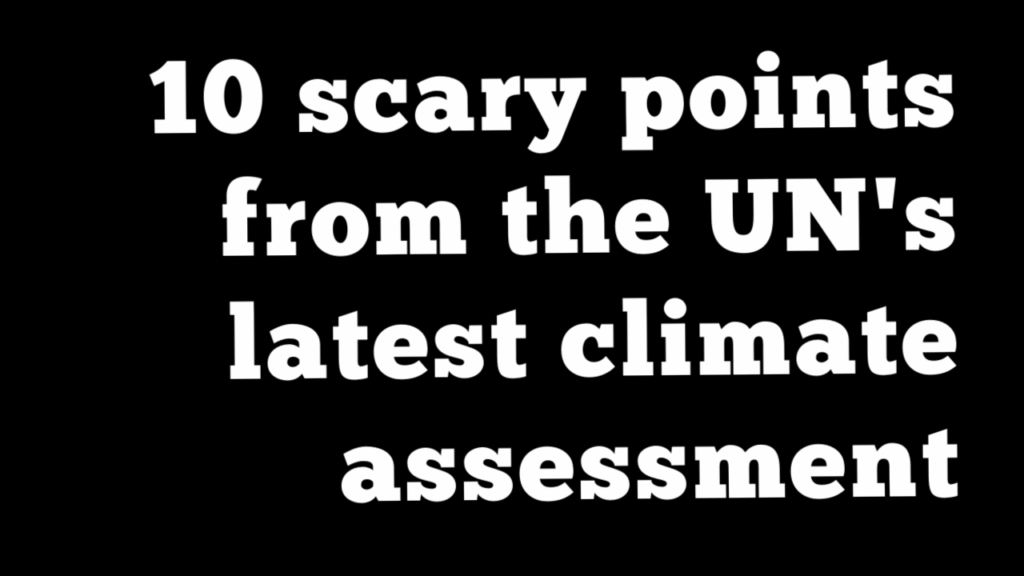10 scary points from the UN’s latest climate assessment

The climate science news is big today. And of course, very depressing. The IPCC (Intergovernmental Panel on Climate Change) – a United Nations body charged with assessing climate risk – issued its 6th assessment report.
Arun Kelshiker shared this note with these 10 summary points pulled from the related press release:
1. Climate change is widespread, rapid and intensifying. Every region facing increasing changes.
2. Report finds that unless there are immediate, rapid and large-scale reductions in greenhouse gas emissions, limiting warming to close to 1.5°C or even 2°C will be beyond reach.
3. For 1.5°C of global warming, there will be increasing heat waves, longer warm seasons and shorter cold seasons.
4. Climate change impacts include changes to wetness and dryness, to winds, snow and ice, coastal areas and oceans.
5 Intensifying the water cycle. This brings more intense rainfall and associated flooding, as well as more intense drought in many regions. Affecting rainfall patterns. In high latitudes, precipitation is likely to increase, while it is projected to decrease over large parts of the subtropics. Changes to monsoon precipitation are expected, which will vary by region.
6. Coastal areas will see continued sea level rise throughout the 21st century, contributing to more frequent and severe coastal flooding in low-lying areas and coastal erosion.
7. Further warming will amplify permafrost thawing, and the loss of seasonal snow cover, melting of glaciers and ice sheets, and loss of summer Arctic sea ice.
8. Changes to the ocean, including warming, more frequent marine heatwaves, ocean acidification and reduced oxygen levels will continue throughout at least the rest of this century.
9. For cities, aspects of climate change may be amplified, including heat (urban areas are usually warmer), flooding from heavy precipitation events and sea level rise in coastal cities.
10. The report also shows that human actions still have the potential to determine the future course of climate.
Also see this article from “ESG Today” – and this piece from Eric Roston and Akshat Rathi…
